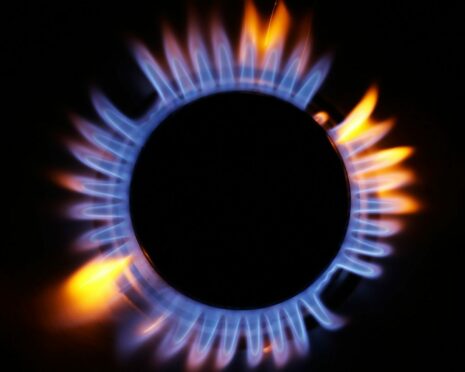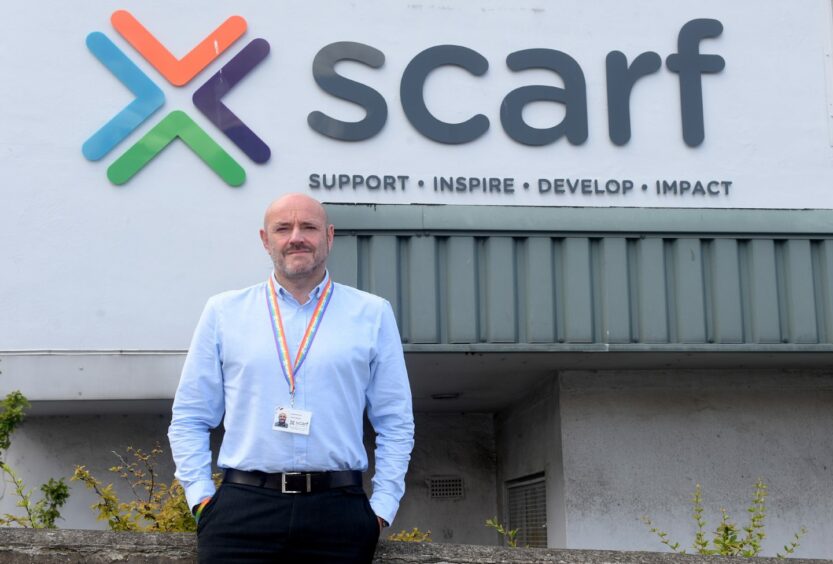People in Scotland will see a rise in their energy prices in April, with one charity describing the increase as “eye-watering”.
Energy regulator Ofgem, announced that the price cap on energy bills would increase by 50%, landing many people in fuel poverty.
People who would usually pay around £1,200 per year for their energy now could pay nearly £2,000.
It comes as the UK faces a multi-faceted living crisis due to rising fuel and food prices, leaving many struggling.
Danielle Flecher-Horn, the founder of Abernecessities, said: “The cost of the living crisis has left many struggling to cover basic expenses; the impact on lower-income households is even more significant.
“The energy crisis will push even more families deeper into poverty whereby making the choice between heating the home or feeding their children is the only option.
“The government speak of their dedication to early learning to ensure every child has the best start in life; they speak of their dedication to do more to prevent adverse childhood experiences; they speak of building on their work to close the attainment gap, yet many will go to bed hungry and/or freezing.
“How can we expect these children to be in a place of learning when this crisis alone will adversely impact a child’s development and health – because their basic needs are not being met.
“The impact on families and children will be great and create further inequalities in childhood, as well as into adulthood.”
‘In some parts of the north-east as many as one in two households are in fuel poverty’
Young families are not the only demographic being affected by the increase, according to the former secretary of another local charity.
George Paterson, the former secretary of Grampian Senior Citizens Forum, says that the elderly aren’t being supported by the government and felt “isolated beyond belief” during recent power cuts due to the stormy weather.
He said: “I don’t think it’s fair to pensioners, or anybody else. It appals me.”
Mr Paterson also explained that the increase in energy bills will impact people who had their Universal Credit cut by £20 in 2021.
Brian Sloan, Age Scotland chief executive, said: “This eye-watering increase to the energy price cap confirms our worst fears and will make life considerably harder for hundreds of thousands of older people in Scotland.
Where can you find help if you are struggling to pay your energy bills?
“Our research has always identified energy bills as the main cause for financial concern among older people, so this news will only serve to compound their anxieties.
“At a time when many are already feeling under pressure due to rapidly rising energy bills, news that bills are set to rise further still will put those already struggling in an extremely difficult position.
“Access to affordable heating options is more important than ever. Household energy isn’t a luxury, it is an essential resource which supports our health and wellbeing.”
Matt Downie, chief executive of Crisis, said: “We are deeply concerned over the prospect of more and more people who are currently struggling being forced into homelessness.
“Rising energy prices, alongside inadequate welfare support and falling wages all put pressure on people. When that pressure builds up, more people risk being pushed into homelessness.
“Research from our Homelessness Monitor found that every local authority in Scotland expected to see a rise in homelessness in the post-pandemic period.”
A rise in energy prices will occur when Ofgem raise the energy price cap in April
Lawrence Johnston, the joint-acting chief executive of Scarf, says that one in two households in the north-east of Scotland are in fuel poverty.
He adds that many families will have to “go without” as wages aren’t matching the rising energy costs.
He said: “Fuel poverty and just poverty, in general, is a challenge for them daily and this will not only compound existing problems but will create new issues for many more households.
“In some parts of the north-east as much as one in two households are in fuel poverty, really, really, really struggling.
“And many of those households are in what’s called extreme fuel poverty, spending more than 20% of their income on their energy costs. These prices rise are simply going to deepen that extreme fuel poverty.”
The energy advice team at Scarf says they are already fielding 250 to 300 calls per day from people in the north-east who need advice on paying their energy bills.
Mr Johnston added: “In the best local authority areas in the north-east fuel poverty runs at about 25 per cent, and it goes right up to about 35 per cent if you go into the more rural areas.
“I think for many, the only options they’re going to have available to them are to go without because their incomes are simply not matching the increases in energy costs. They don’t have luxuries to forego.”
While the UK Government have outlined additional support of around £290 million for the Scottish Government to counter the price rise, there is concern that people could become poorer, suffer from poor health and increased debt due to the changes.


